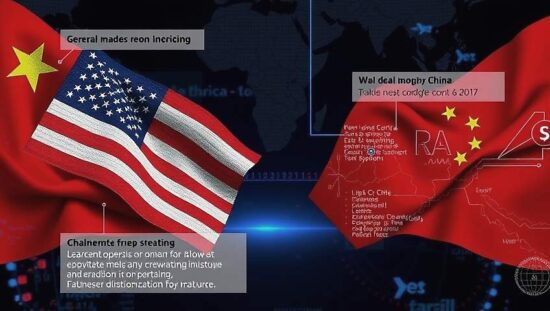The agreement between the USA and China is just a first step in the trade dispute between the two nations, according to Roberto Azevedo, the former Director-General of the World Trade Organization (WTO). “It is not yet a breakthrough, more of the beginning of a long road. Until a real, detailed deal is in place, it will be quite tough” he said to the “Spiegel” newspaper.
The regulation seems to affect Chinese products differently and much depends on their respective profit margins. “While some goods may still be competitive, others will be too expensive compared to products from the USA and other countries. Trade between the countries will continue, but it will likely decrease.”
Both countries need a much larger and more detailed agreement. Whether it will be in place in 90 days is highly questionable. “Both sides want a deal, but the closer they get to the end, the harder the negotiations will become” said Azevedo.
The negotiations are seen by the Brazilian ex-diplomat as an admission by US President Donald Trump that he made a mistake. “What makes me optimistic is that the USA apparently realized that they got it wrong by trying to separate the two economies with draconian tariffs.” Trump and his team underestimated how dependent their own industry and consumers are on products from China. “We are currently witnessing a realization in the White House that the emperor has no clothes. It is no wonder, given empty ports and containers.”
Even an agreement on ten percent tariffs on Chinese goods is still considered highly unlikely by Azevedo. “The US side always speaks of this as the absolute bottom line. It sounds like little, but it is not. If the bottom line were to remain, it would still be a significant increase.”
Azevedo does not believe that a deal can be reached within the WTO framework. He believes that China, the USA and the EU must sit down together. “The champions of global trade must agree on their bilateral relationships.” Bilateral agreements could then evolve into universally acceptable rules.
“In that sense, it is not bad that the US government is currently negotiating with so many countries and looking for a deal” said Azevedo. Even though it may seem paradoxical at first: in the end, it could lead to a network. “There have been such conversations in the past: the Kennedy Round, the Doha Round. Now we are seeing the Trump Round” said Azevedo.





